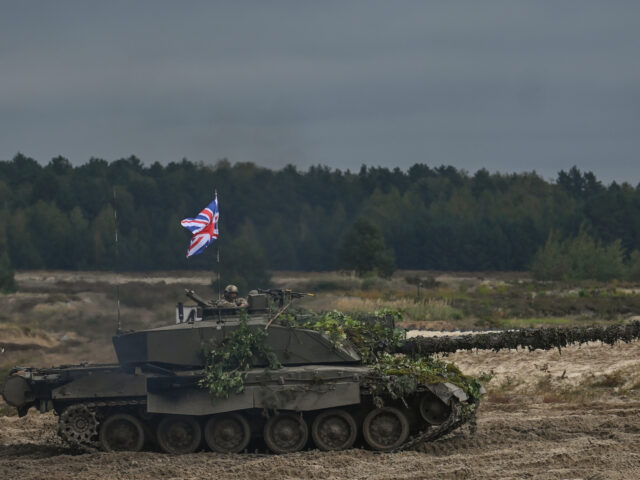Despite officially leaving the European Union nearly three years ago, the United Kingdom will partner with the bloc on its “military mobility” unit so that it can move troops and weapons across the continent quicker, Dutch defence minister Kajsa Ollongren revealed.
Amid Britain’s continued role in the ongoing conflict in Ukraine, the country has allegedly signed up to a pact with the European Union on the movement of military personnel and equipment.
While no official announcement from the British government has been made as of this reporting, Dutch Defence Minister Kajsa Ollongren told the Times of London that he has been in talks with UK Defence Minister Ben Wallace and the agreement will likely be announced in Brussels next month. Alongside Brexit Britian, Canada, Norway and the United States are also believed to be involved in the project.
Ollongren, speaking from a military base in England where British and Dutch personnel are currently training Ukrainian soldiers, said that the decision was “very much related to the war in Ukraine”.
“It’s a sensitive issue since Brexit,” she said, adding: “Britain was out because of Brexit but since Brexit did not change the geography, it’s very important to get you back in.
“I’m really happy that the UK will join because we are seeing right now how important the UK is, it is an important partner when it comes to military co-operation [in] aiding Ukraine.”
The Netherlands, which is organising the so-called military mobility effort, is hoping to establish Cold War-style corridors throughout Europe through which large military equipment and weaponry can be transported quickly in order to supposedly act as a deterrent for further outbreaks of war on the continent.
Resistance is Futile: Brussels Scheming to Integrate UK into EU-Wide Defence Planhttps://t.co/GVQLIKLIwa
— Breitbart London (@BreitbartLondon) June 9, 2022
The transnational agreement raises once again the spectre of a fully-fledged European Army, which among other issues was a key issue during the Brexit debate prior to the 2016 independence referendum in Britain. A common European defence force was labelled a “dangerous fantasy” by remain campaigners in the lead up to the vote, while Brexiteers warned that if the UK stayed within the bloc it would result in the British military being incorporated into such a force.
Confirming such concerns, following the Brexit vote in 2017 some 23 EU member-states signed a pact to create a Common Defence Fund for a joint military force. Since then, leading figures in the EU, such as Commission President Ursula von der Leyen have continued to advocate for the official establishment of an EU Army, saying just last year that she would work to build the “political will” within Brussels to form a joint military.
The push to see the UK join the globalist project has also continued, with Eurocrats proposing in June to “bring the UK into a framework for common cooperation on defence and foreign policy matters” in light of the war in Ukraine, suggesting that the EU could use trade as a bargaining chip to convince London to aqueise to the scheme.
They also called for the bloc to “rapidly work towards setting up a fully functional EU military headquarters,” though where such an HQ would be located has yet to be determined.
The disclosure of the UK’s intention to join onto the EU military mobility group comes as Rishi Sunak has been installed in Number 10 Downing Street. The former finance chief under Boris Johnson has limited foreign policy experience having never held a post in the foreign office, however, it appears that he is intent on continuing the hawkish stance from his predecessors on the war in Ukraine of supplying weapons, aid, and training rather than pushing for a peace agreement with Russia.
In one of his first acts as PM, Mr Sunak spoke with Ukrainian President Volodymyr Zelensky, stating: “Both he and the Ukrainian people can count on the UK’s continued solidarity and support. We will always stand with Ukraine.”
Older Britons Back UK Role in Ukraine Much More Strongly than Military-Age Britons: Poll https://t.co/IZnGDga25w
— Breitbart London (@BreitbartLondon) October 8, 2022
Follow Kurt Zindulka on Twitter here @KurtZindulka

COMMENTS
Please let us know if you're having issues with commenting.